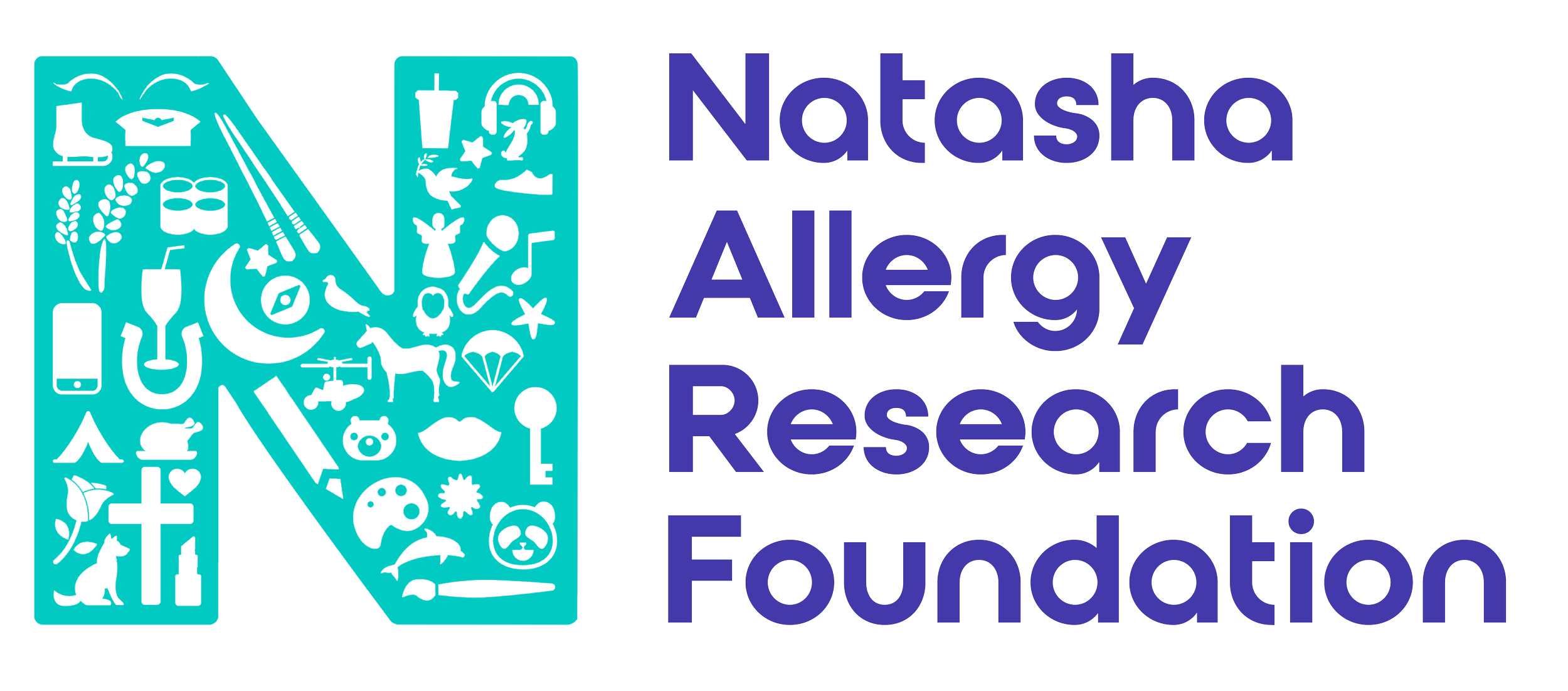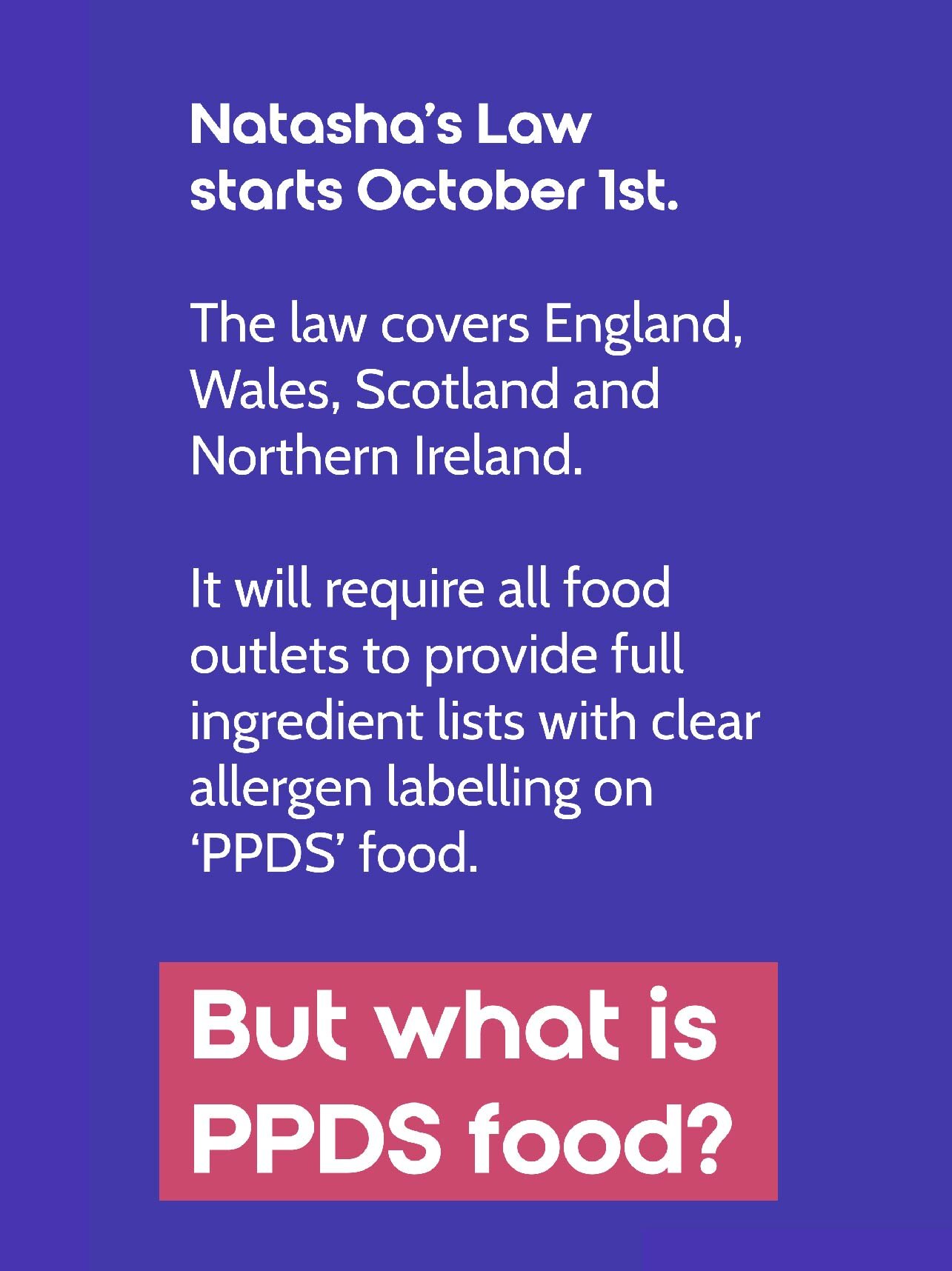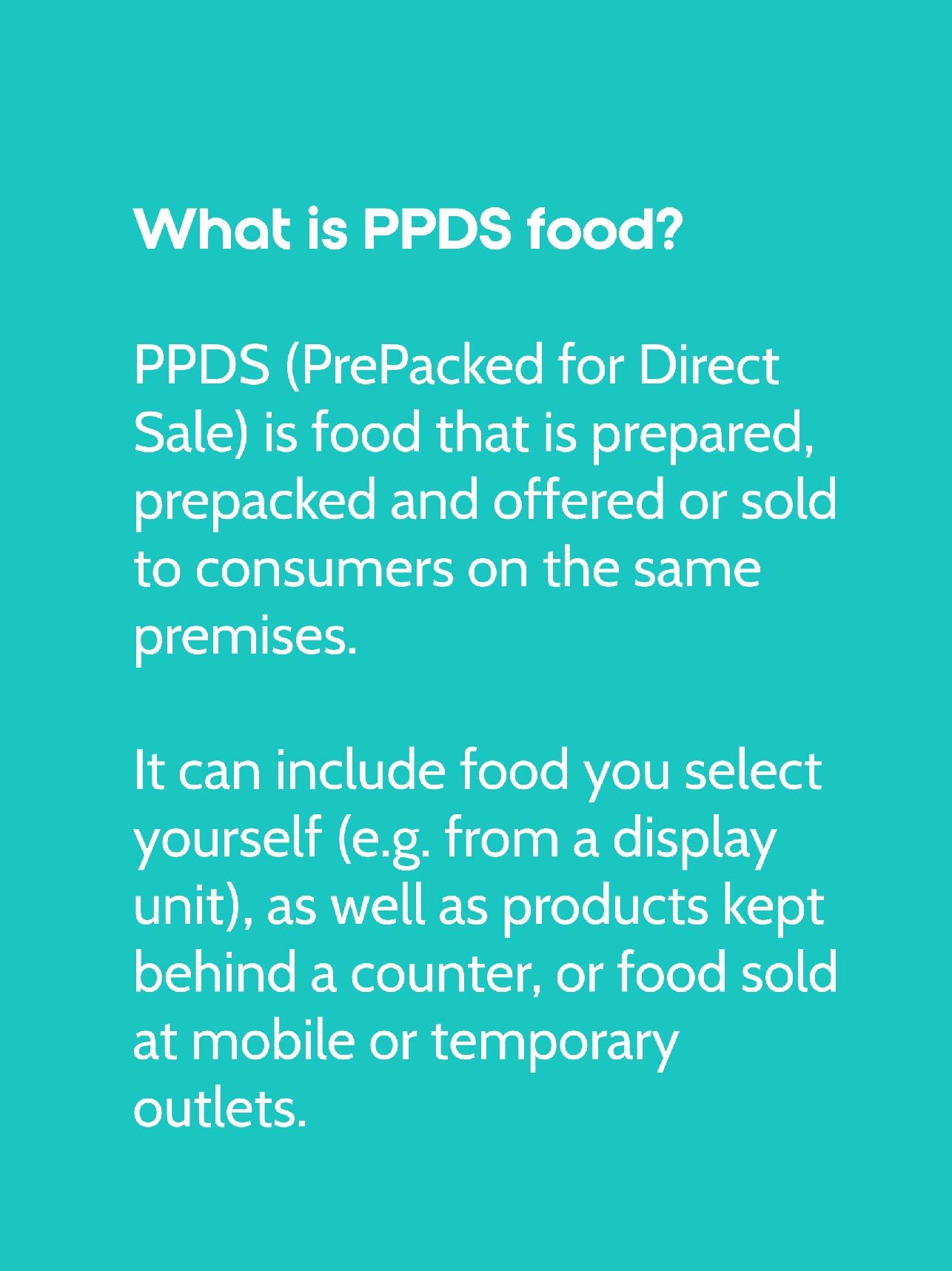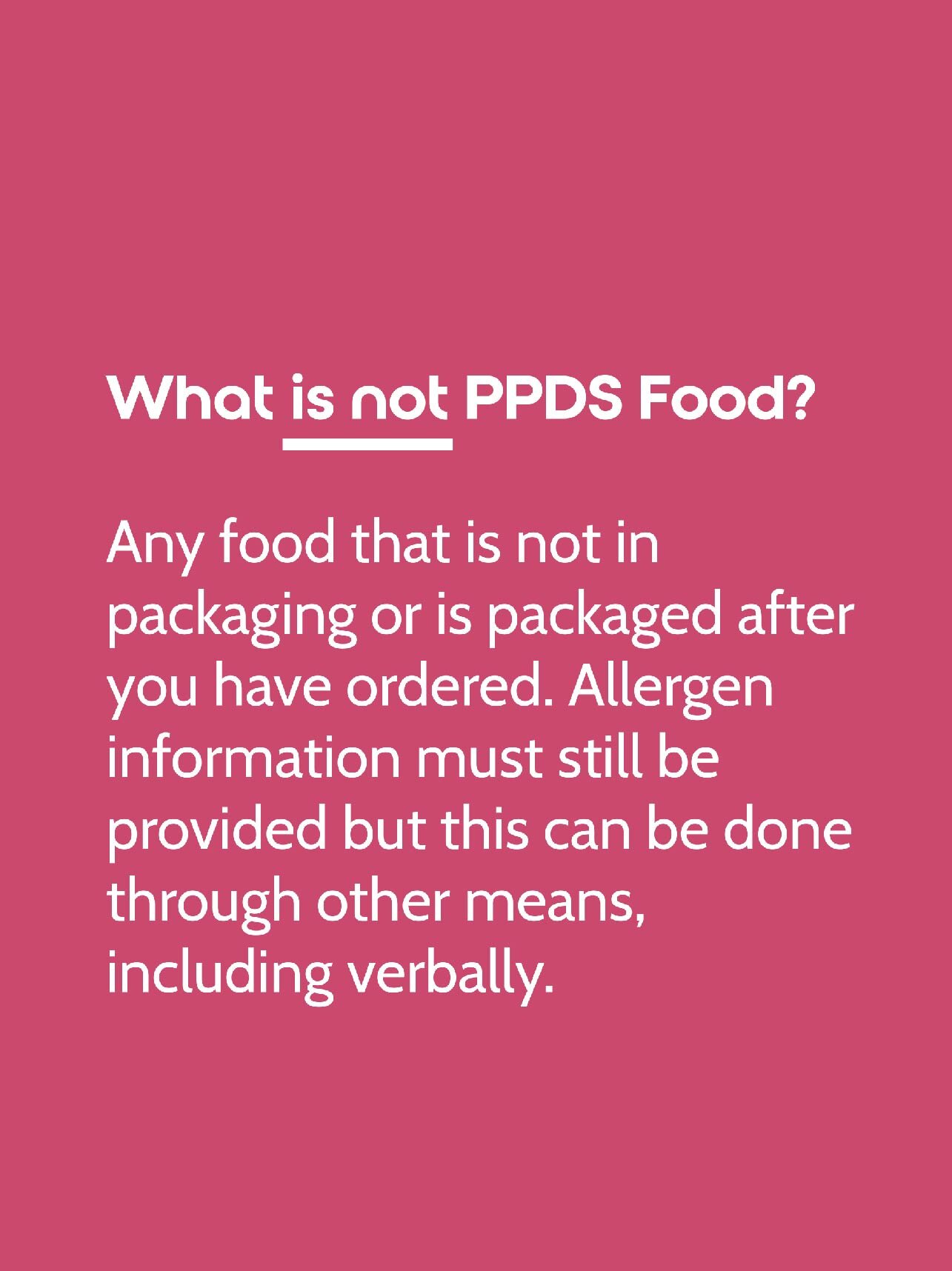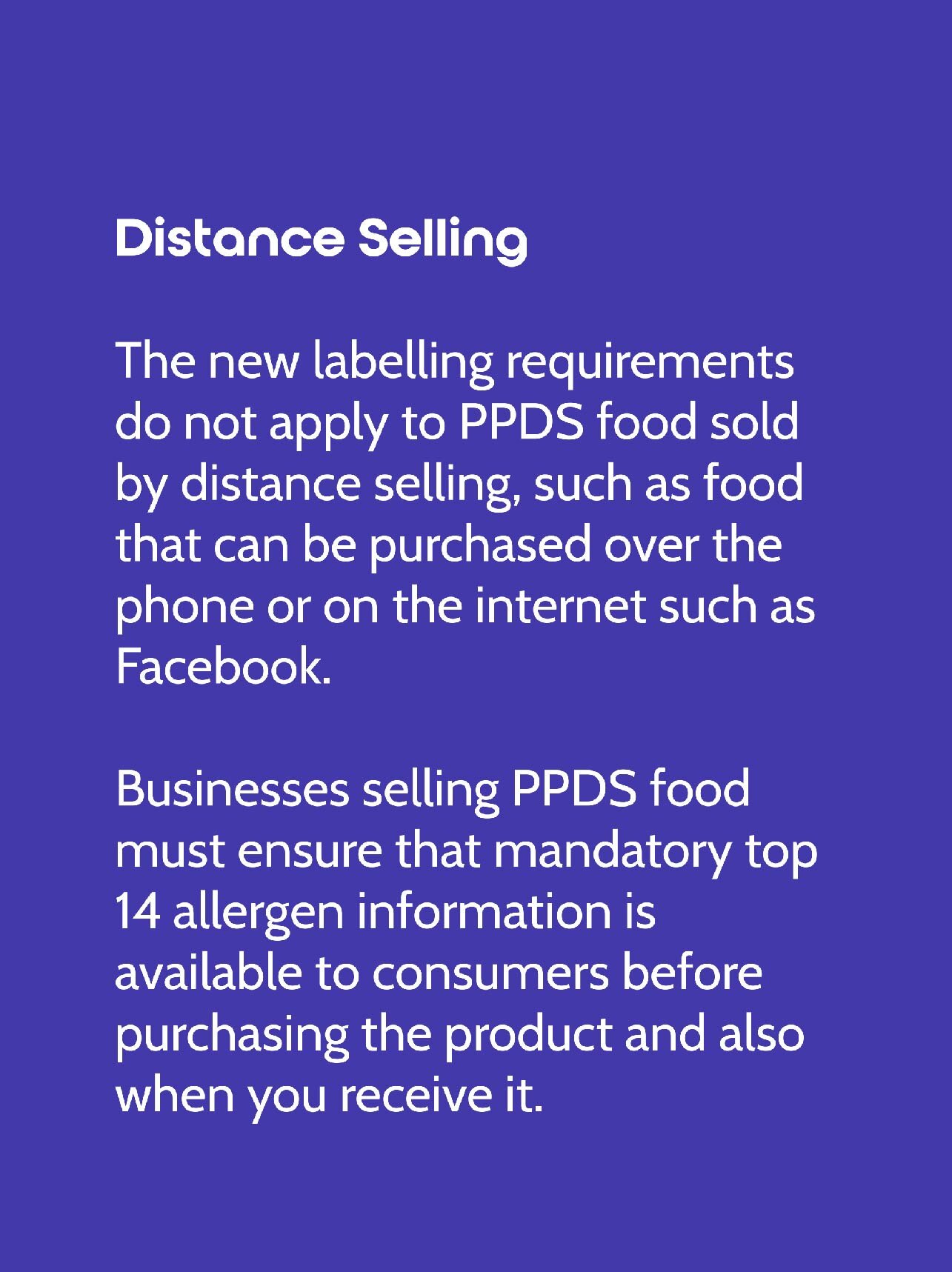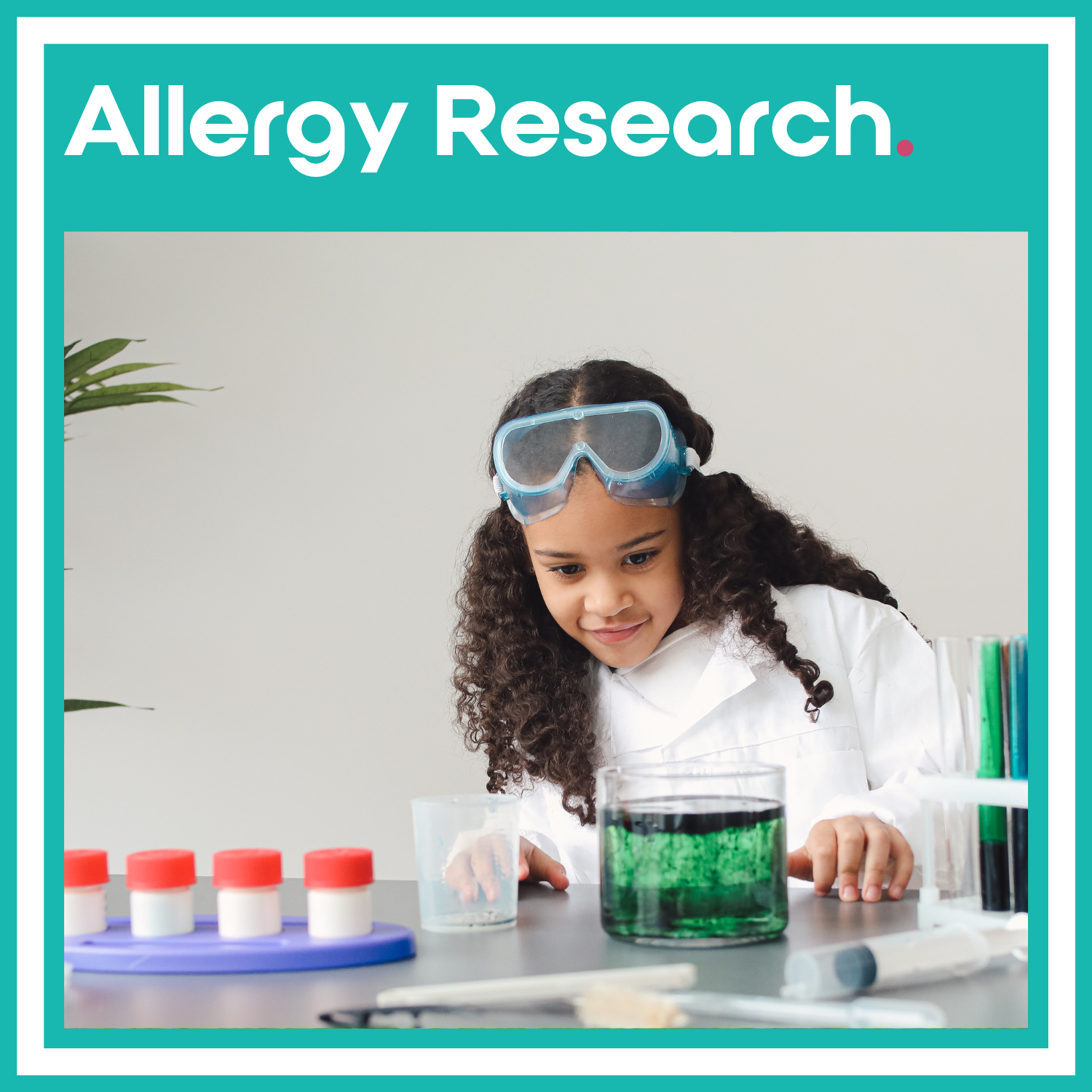Natasha’s Law came into effect on the 1st October 2021.
A few days before Natasha’s Law was due to come into effect, Tanya and Nadim Ednan-Laperouse OBEs met with Ravneet Nandra from ITV News.
What is Natasha’s Law?
Nadim and Tanya Ednan-Laperouse OBEs explain Natasha’s Law and why it is essential.
The History Behind Natasha’s Law
Natasha’s Story
“There was no specific allergen information on the baguette packaging… and Natasha was reassured by that.”
It was a crucial sentence in the Coroner’s verdict, but one that articulated perfectly the legal loophole which Nadim and Tanya had come to blame for Natasha’s death.
Natasha had more than been reassured. She was elated that she had found her favourite ingredients - olives and artichokes - in what she considered an allergen-free sandwich at Pret a Manger store in Heathrow Airport. As has been well documented, once aboard the BA flight to Nice, Natasha suffered an anaphylactic reaction to the hidden sesame seeds, baked into the dough of the baguette, and died later that day. There was no specific allergen information on the baguette packaging… and Natasha was reassured by that.
In the two years after Natasha’s death until the inquest, we read, and read again, the food regulations that allowed pre-packaged food to be sold without allergen labelling. We could understand that if you buy a sandwich from a local deli or cafe, where it is made in front of you, then allergen labelling is not required. But we just could not understand how a giant high street chain could wrap up tens of thousands of sandwiches in cellophane and printed cardboard rings yet have no legal duty to name the allergens.
The Coroner, Dr Sean Cummings, agreed. As he made his directive to the Environment Secretary Michael Gove, he stated explicitly:
“In my opinion there is a risk that future deaths could occur unless action is taken.”
Within days, Pret’s Chief Executive Clive Schlee, pledged that the company would be in the vanguard of serious change, and that they would be listing all ingredients and allergens on their packaging by the end of 2019.
January 2019
In January 2019, Michael Gove, Secretary of State for the Department of Environment, Food and Rural Affairs, was as good as his word since first meeting Nadim and Tanya and announced a consultation for a new law, ‘Natasha’s Law’ to prevent other needless deaths.
Over the last few decades the contamination of food with bugs and bacteria like salmonella, listeria, E.coli and norovirus has been the industry’s ‘Public Enemy Number One.’
September 2019
In September 2019, Natasha's legacy was laid in parliament and is known as "Natasha's Law". It includes stricter requirements for pre-packaged foods to carry a full ingredients list.
With other high-profile allergy fatalities since Natasha’s death, the food industry has had to recognise the need for it to change allergen information labelling. Natasha’s Law will came into effect two years later in October 2021 to allow a transition period for businesses to properly implement the new regulations. The Food Standards Agency were tasked with ensuring businesses took, and continue to take, the right steps to make labelling both accurate and fully effective.
“The introduction of Natasha’s Law brings greater transparency about what people are buying and eating, lays down new standards for the food companies, and highlights the battle against the growing epidemic of allergies,” commented Zac Goldsmith, Food Minister.
Research has showed that 88% of the general public fully supported Natasha's Law, making it the most important priority for food retailers and customers amid the growing epidemic of allergies in the UK.
The Government Consultation Options were as follows:
1) Promote best practice (non- regulatory)
2) Ask the staff
3) Allergen labelling on packaging (14 allergens)
4) Full ingredient labelling (Natasha’s law)
Why is Natasha’s Law so important?
Food allergies, the newer and less understood enemy, have been until now largely dismissed or ignored. This was clearly evident in Pret a Manger’s failure to respond to repeated warnings about the dangers of allergens - and sesame seeds in particularly - in the months before Natasha’s death.
But the growing numbers of people with allergies can no longer be ignored. There are now 1 in 4 people living with allergies in the UK. The rise in numbers of children being diagnosed with allergies is very worrying as are the ever-increasing numbers of adults with no allergic history who are suddenly becoming anaphylactic to what they always had considered to be ‘safe foods’. This rise is in food allergies is on an unprecedented scale and science has no idea why.
“Just over 37% of Brits agree it’s easy to identify which allergens a product is free from by its label”
- Mintel
Research from Mintel has found that almost half (48%) of Brits are unsure whether or not allergen labels are clear, and a further 15% have no confidence in them at all.
Emma Clifford, Associate Director of Food and Drink at Mintel, said:
“Potential changes to allergen labelling have received a lot of high-profile media coverage recently, with speculation that the Government is planning to introduce new changes following the death of Natasha Ednan-Laperouse.
Given the perceived lack of clarity and the dangerous health implications that ambiguous allergen labelling can have on consumers, there is a real need for companies to make the presence of allergens very obvious on labelling.
The lack of label uniformity has been fuelling confusion among consumers, particularly given the huge amount of other product information on packaging. There is a very strong demand for a UK-wide labelling system for allergens which would unify the way in which companies communicate this information on packaging.”
Eating habits and consumers approach to what they are eating is shifting at speed and consumers are demanding more clarity, honesty and transparency. Increasingly, individuals without food allergies also want to know what is in their food so they can make informed choices for health or lifestyle choices. They demand to know what is in their food, not just the 14 “named” allergens, but all the ingredients as well.
History shows that change for the better often only comes following tragedy.
Natasha’s Law 2022 - An Update
The FSA and DEFRA have allocated funding of £1,529,855 to help local authorities cover the additional costs incurred to ensure Natasha’s Law is being enforced correctly in their area.
The grant is specific for 2022 to 2023 only.
Natasha's Law is there to protect people with food allergies who rely on the transparency of ingredients and food labelling for prepacked foods and it must have full compliance or lives will continually be put at risk.
To see a list of local authorities who will receive the grant: CLICK HERE
